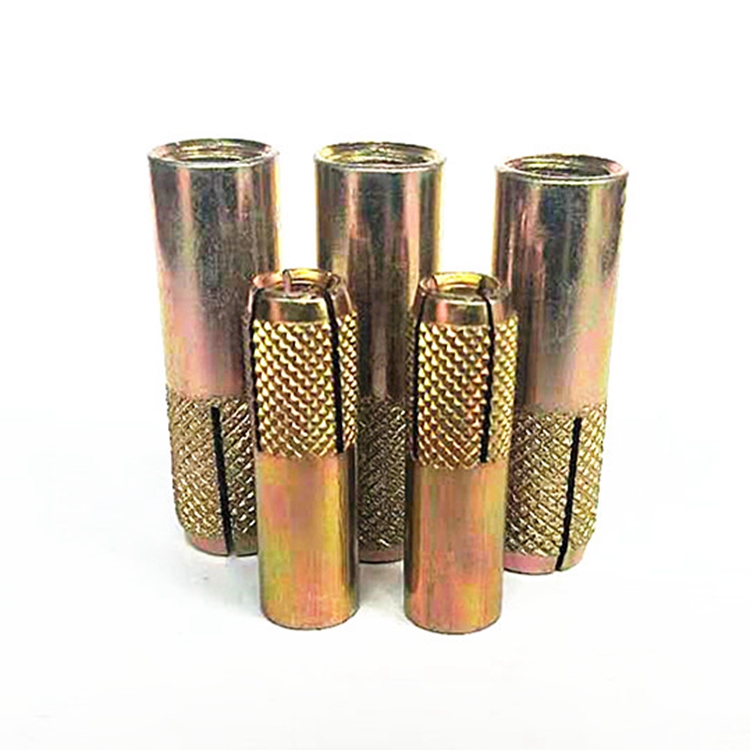Top Choices for High-Quality Aluminum Rivet Nuts for Your DIY Projects and Repairs
Jul . 28, 2024 21:22 Back to list
Top Choices for High-Quality Aluminum Rivet Nuts for Your DIY Projects and Repairs
The Best Aluminum Rivet Nuts A Comprehensive Guide
When it comes to fastening solutions in various industries, aluminum rivet nuts stand out due to their versatility, strength, and lightweight properties. They are especially favored in applications where a high strength-to-weight ratio is essential, such as in aerospace, automotive, and manufacturing sectors. In this article, we’ll explore the benefits of aluminum rivet nuts, factors to consider when selecting them, and some of the best options available in the market today.
What are Aluminum Rivet Nuts?
Aluminum rivet nuts, often referred to as blind rivet nuts or insert nuts, are tubular nuts that are installed into pre-drilled holes to create a strong and permanent thread in thin materials. Their design allows for secure fastening from one side of the material, which is particularly useful in applications where access to the opposite side is limited.
Benefits of Aluminum Rivet Nuts
1. Lightweight One of the primary advantages of aluminum rivet nuts is their lightweight nature. Aluminum is 30% lighter than steel, making it an ideal choice for applications where weight-saving is critical.
2. Corrosion Resistance Aluminum naturally forms a protective oxide layer, which makes these rivet nuts resistant to corrosion. This property is particularly beneficial in outdoor applications or environments prone to moisture.
3. Ease of Use Installing aluminum rivet nuts is a straightforward process. They can be installed using hand or power tools, which saves time and labor costs.
4. Versatile Applications These nuts can be used in a variety of materials including metal, plastic, and composite materials, making them extremely versatile for different projects.
Factors to Consider When Choosing Aluminum Rivet Nuts
best aluminum rivet nuts

1. Size and Thread Type It’s crucial to select the right size and thread type based on your project requirements. Rivet nuts come in various sizes and thread options, so ensure you match these with your bolts or screws.
2. Material Thickness The thickness of the material into which the rivet nut will be installed can affect your choice. Different rivet nuts are suited for varying material thicknesses, so it's important to check specifications.
3. Installation Method Different types of rivet nuts require specific installation tools. Ensure you have the appropriate tool (manual or pneumatic) for the type of rivet nuts you choose.
4. Load Capacity Assess the load requirements for your application. Rivet nuts are rated for different load capacities, which should align with the demands of your project.
Top Choices of Aluminum Rivet Nuts
1. CARRIAGE Aluminum Rivet Nuts Known for their strong grip and durability, CARRIAGE rivet nuts excel in high-stress environments and are easy to install.
2. Bolt Dropper Rivet Nuts These aluminum rivet nuts are perfect for both DIY and professional projects. They are available in various sizes and offer excellent corrosion resistance.
3. K-S TOOL International Rivet Nuts With a wide range of sizes, K-S TOOL rivet nuts are ideal for automotive and aircraft applications due to their high strength and reliability.
4. Talon Rivet Nuts Talon provides a strong, lightweight solution for a variety of applications. Their nuts come with a flanged design that helps distribute load evenly.
Conclusion
Aluminum rivet nuts are an essential component in modern fastening solutions, offering a combination of strength, weight savings, and ease of use. By understanding their benefits and evaluating the various options available on the market, you can select the best rivet nuts to suit your project needs. Whether you're engaged in industrial manufacturing, automotive design, or DIY projects, aluminum rivet nuts offer the reliability and performance required in today’s demanding applications.
Latest news
-
Top Wire Bolts Suppliers - Quality & Durable Fasteners
NewsAug.15,2025
-
Trusted Wire Bolts Company | Quality Fasteners Supplier
NewsAug.14,2025
-
Reliable Wire Bolts Suppliers & Manufacturers for Global Needs
NewsAug.13,2025
-
High-Quality Bolts for Lawn Mower Handle Supplier
NewsAug.12,2025
-
Leading Phosphated Drywall Screws Supplier | Bulk & Custom Orders
NewsAug.11,2025
-
Top Wire Bolts Company: Manufacturers, Exporters & Suppliers
NewsAug.10,2025
